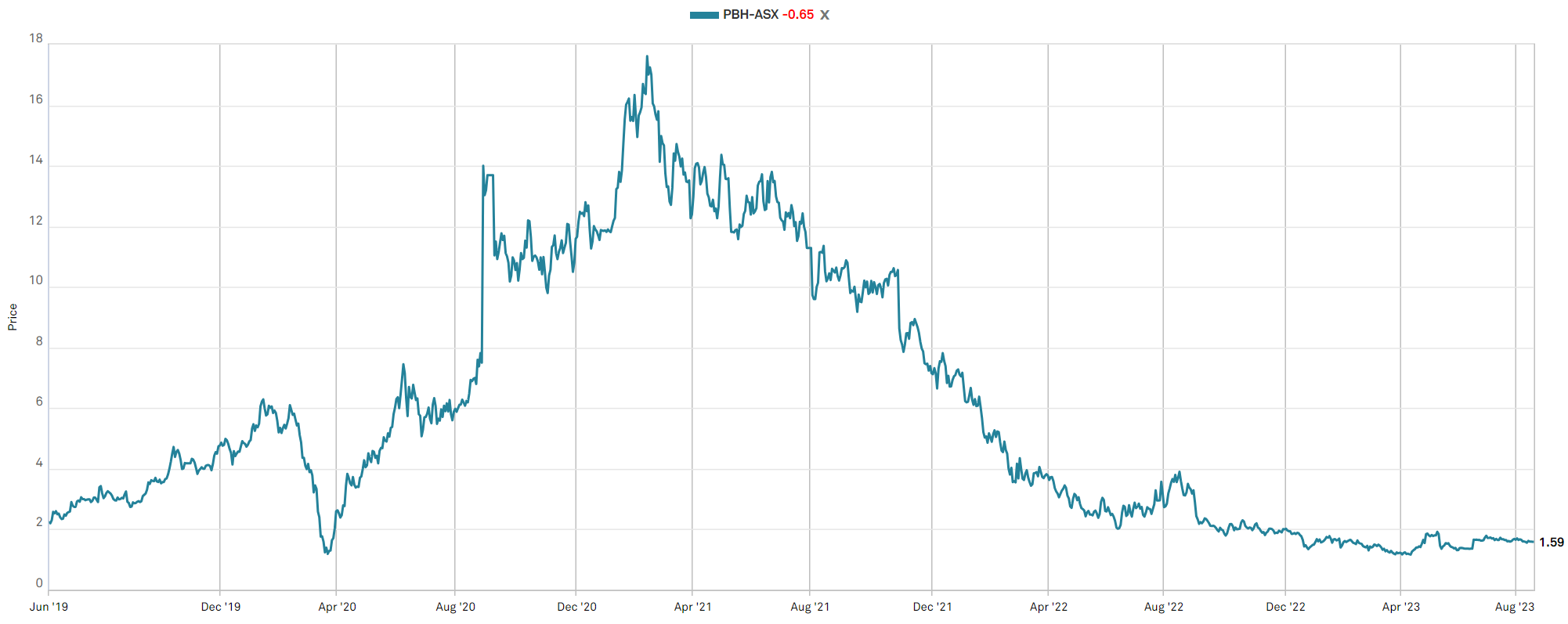3 ingredients for deep value success and which stock has them now
Value investing is simple in theory. Buy stocks for less than they are “worth” and reap the rewards. In practice, value investors are a diverse bunch. Some buy high quality businesses that they expect to grow for decades.
Others do the opposite. They seek out eschewed, underperforming businesses where the value of the underlying assets is significantly higher than the share price, precisely because everyone is so pessimistic about the business. These types of investments are sometimes called deep value, asset plays or cigar butts - dirt cheap stocks with one last puff of value in them.
In my early years as an investor, I was a deep value guy. The idea of buying something no one else wants to own has more intuitive appeal to me than a company with a great narrative behind it. Why would anyone sell the latter for a stupid price?
I had my fair share of successes. Having invested at an average of about $0.25 per share, the old RAMS Home Loan Group paid my super fund almost $1.50 in fully franked dividends over about 5 years.
There have also been several costly “value traps” along the way. You’ve seen those comedy shows where the $20 note is stuck on the pavement and we all get to laugh at passersby trying to pick it up. Sometimes value is a mirage. Timbercorp was a cigar butt of mine that was worthless.
We do a lot less deep value investing these days. The best of these opportunities are tiny, almost by definition, making it hard to invest enough money to make it worthwhile for our funds. And, for larger investors, entry and exit costs can be significant due to a lack of liquidity. While that’s true of all small stocks, the impact on an investment that is only held for 12 months is larger than one that is held for 5-10 years.
But there’s still a place for the deep value stock at Forager. And, given woeful sentiment surrounding small caps at the moment, there are a few of them around.
Ardent Leisure (ASX: ALG) recently sold its US business, Main Event, and returned $0.95 to shareholders (you could have bought them for less than $1 for a year prior to that). A2B (ASX: A2B), the old Cabcharge, recently agreed to sell a plot of land it owned near Sydney Airport for $78m, roughly 80% of the value of the whole company prior to a potential sale being muted. Most of that cash is coming back to shareholders as fully-franked dividends.
My favourite one currently is PointsBet (ASX: PBH), a former high flyer that has a business model now proven to lose money.
One of my friends, having purchased at much higher prices, told me the stock is dead to him. That’s exactly what we are looking for.

The PointsBet back story
PointsBet raised more than $1.2bn from Australian investors over the past five years. It has torched some $800m and the losses haven’t stopped yet.
An ill-fated foray into the nascent US sports betting market cost investors dearly. At peak investor optimism in February 2021, PointsBet shares were changing hands for $17 each. As of 31 July 2023, they traded at $1.66.
Forager is invested in London-listed Flutter (LON: FLTR) in our Forager International Shares Fund. Based on our experience in Australia and the UK, our thesis was that industry giants Draftkings and Fanduel (owned by Flutter) would kill the smaller players in the US. So we watched the PointsBet horror show from the sidelines.
Today, however, it has all the ingredients of a great deep value play.
The three key ingredients for deep value
The first thing you need is a commitment to value realisation. Here that’s not even a question (well, mostly not, see below). PointsBet has agreed to sell its loss-making US business for US$225m.
The second key ingredient is that you need to be sure the value realised gets returned to shareholders. In 2013, we had to take a fellow shareholder in RCU Property Trust to court to get our money returned after all of its assets were sold.
In PointsBet’s case, that’s looking like a low risk.
Management have committed to returning the sale proceeds and some of what’s left of the cash on its balance sheet. In total, an estimated $1.39-$1.44 will be returned to shareholders over the next 12 months, with approximately $1 of that due to be paid out in mid-September.
Third, fairly obviously, you need the value of what gets returned to you to add up to significantly more than your purchase price.
Assuming $1.40 out of the current $1.58 share price gets returned in short order, today’s investor is paying $0.19 or so per share for what’s left. And that’s where PointsBet gets interesting.
Shareholders will be left with a modestly profitable Australian business and a loss-making Canadian business, the combination of which is expected to deliver “positive group EBITDA by 2025”. We don’t expect this business to become a thriving profitable business. Sportsbet, also owned by Flutter, is the industry giant in Australia and it isn’t going to be dislodged any time soon.
A valuable rump
Rather, our thesis is that PointsBet shareholders can make good money from the asset it still owns at some point in the next few years.
Outside the sold US business, PointsBet has more than 260,000 customers who have placed a bet in the last 12 months. The net revenue they generated was more than $200m. Sports betting customers are expensive to acquire (those NRL ads don’t come cheap) and are becoming increasingly more so. Proposed new sports betting advertising regulation in Australia—as welcome as it is—will only make existing customers more valuable. As we have seen with previously ASX-listed sports betting companies IASBet and Centrebet, subscale businesses get sold to larger competitors who add the customers to their existing infrastructure.
PointsBet sold its US business for 1.3 times its revenue. Prior Australian transactions have been in the same ballpark and we expect the same to ultimately happen with PointsBet’s Australian and Canadian businesses, which would equate to something north of $0.70 per share. Whether you cut it based on value per customer or as a multiple of revenue, PointsBet’s remaining businesses should be worth three times the value implied by today’s share price.
No investment is risk free. Stranger things have happened than a deal falling over or management deciding they no longer want to pay out the cash. And to get exposure to that attractive rump today, you need to risk a lot of capital. In Forager’s Australian Shares Fund, we have invested more than 5% of the portfolio in PointsBet with the expectation that, after the cash has been returned, we will have roughly 1% invested in the rump.
But the PointsBet board has shown they are prepared to salvage what they can from this wreck and that should be more than the current share price. If not, I’m tipping there will be enough deep value investors turn up on the register to force the issue.
Learn more about Forager
If you share our passion for unloved bargains and have a long-term focus, Forager could be the right investment for you. Click 'FOLLOW' below for more of my insights.
For all of Forager's latest content, videos, podcasts and fund reports, register here.

4 topics
4 stocks mentioned
1 fund mentioned

